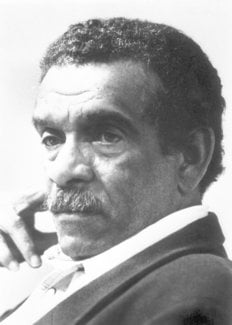Derek Walcott
Biographical

Derek Walcott was born in 1930 in the town of Castries in Saint Lucia, one of the Windward Islands in the Lesser Antilles. The experience of growing up on the isolated volcanic island, an ex-British colony, has had a strong influence on Walcott’s life and work. Both his grandmothers were said to have been the descendants of slaves. His father, a Bohemian watercolourist, died when Derek and his twin brother, Roderick, were only a few years old. His mother ran the town’s Methodist school. After studying at St. Mary’s College in his native island and at the University of the West Indies in Jamaica, Walcott moved in 1953 to Trinidad, where he has worked as theatre and art critic. At the age of 18, he made his debut with 25 Poems, but his breakthrough came with the collection of poems, In a Green Night (1962). In 1959, he founded the Trinidad Theatre Workshop which produced many of his early plays.
Walcott has been an assiduous traveller to other countries but has always, not least in his efforts to create an indigenous drama, felt himself deeply-rooted in Caribbean society with its cultural fusion of African, Asiatic and European elements. For many years, he has divided his time between Trinidad, where he has his home as a writer, and Boston University, where he teaches literature and creative writing.
This autobiography/biography was written at the time of the award and first published in the book series Les Prix Nobel. It was later edited and republished in Nobel Lectures. To cite this document, always state the source as shown above.
Derek Walcott died on 17 March 2017.
Nobel Prizes and laureates
Six prizes were awarded for achievements that have conferred the greatest benefit to humankind. The 12 laureates' work and discoveries range from proteins' structures and machine learning to fighting for a world free of nuclear weapons.
See them all presented here.
